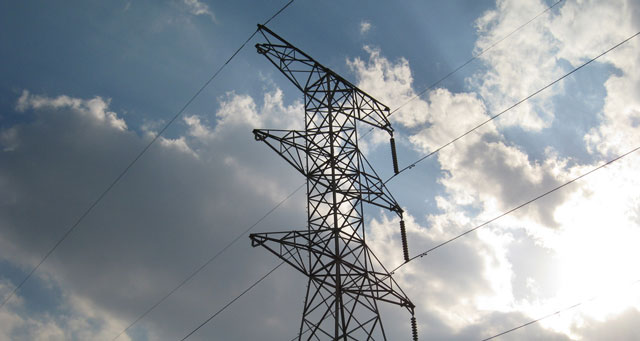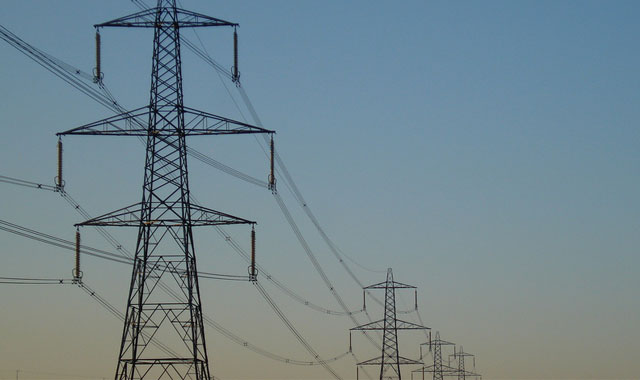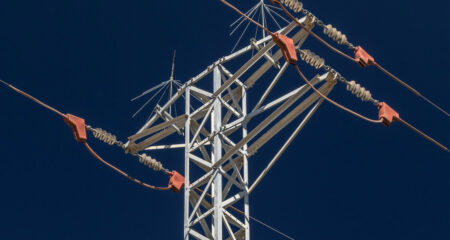
There will be load shedding even if it may cost the ANC votes. This is the expressed attitude of public enterprises minister Lynne Brown, who remains resolute about fixing the problems plaguing power utility Eskom for the long term, even if it means doing the unpopular thing.
But this approach has drawn resistance from energy minister Tina Joemat-Pettersson, who is apparently accused of “overstepping her turf”.
One cabinet minister, who preferred not to be identified, told the Mail & Guardian that there were huge differences between the two ministers about how to solve the energy problem.
Brown seems also to be in disagreement with President Jacob Zuma, who has again blamed apartheid for the energy crisis. A number of other cabinet members also disagree with the president, even though they are unwilling to tackle him head-on.
But the real battle appears to be between Joemat-Pettersson and Brown.
“The first issue is the ideological one,” the minister said. “It is a difference we have in cabinet too. Yes, the president is right when he says apartheid is to blame for the strain on the grid, but at the end of the day we made very bad decisions. And this is where the two ministers are disagreeing. I think Lynne [Brown] is more honest. She is not worried about who she will upset.”
Brown refuses to agree to short-term solutions to the energy crisis and has apparently refused to buckle to political pressure.
A second cabinet member said: “There has to be self-criticism in the ANC government. We made unwise decisions and locked ourselves in bad contracts. When technical people advised us about the problems we are facing today, government ignored it.”
In December 2007, former President Thabo Mbeki apologised publicly for not allowing Eskom to build new power stations, saying: “Eskom was right. We were wrong.”
The minister told the M&G this week that the government should have invested in capacity and in managed the contracts properly.
During a discussion on the sidelines of the last ANC national executive committee meeting earlier this month, it was said that load shedding would have serious implications for the local government elections.
But Brown told the M&G that she would not keep the lights on at the risk of future blackouts. “The point is, I have to make a decision whether having sustainable energy is more crucial than keeping the lights on.”
Brown said that planned load shedding remained the only viable solution in the short term. “We have to fix Eskom for 20 … 30 and even 40 years from now.”
Brown would not discuss whether there was a turf battle between her and Joemat-Pettersson, saying only that the department of energy had a clear mandate in terms of supplying energy whereas she had the mandate of oversight at Eskom.
“As politicians we need to get to the nub of the problem … that’s what we need to do.”
The diesel-guzzling, open-cycle gas turbines are being run for up to eight hours at a time, as opposed to the two to three hours originally intended, to keep the lights on. The cost, at R3/kWh, is draining the utility of about R1bn/month and is not a sustainable solution, even if additional funding was secured.
The M&G understands there is disagreement over whether the diesel generators should continue to run.
It appears that Brown begun to share treasury’s view that this would not be sustainable.

Joemat-Pettersson was not available for comment this week, but the director-general of energy, Wolsey Barnard, said the department was adamant the diesel generators had to continue running.
Brown warned last year that Eskom was rapidly running out of cash and, in December, told reporters that funds could potentially be raised on the bond market with the help of state guarantees. But this week finance minister Nhlanhla Nene told Business Day that the government could not help Eskom with day-to-day operational issues and that a bailout would be inappropriate.
Brown now seems to be in agreement with the treasury, asserting that load shedding, and not necessarily more government intervention, is the optimum solution.
A third member of the executive said there was disagreement about what had caused the crisis.
“There is a debate on which way to go. We are caught between shifting responsibility and admitting that we made huge blunders.
“On the one hand we have Lynne saying, ‘Let us fix Eskom for the long term’. And nobody is disagreeing. All of us in cabinet agree that we need to fix the problem. But there are those who are playing politics, too. It doesn’t help that we have an energy crisis at Eskom and a management problem.”
Management link
Brown said the energy crisis and Eskom’s management were linked.
Eskom embarked on ambitious megaprojects Medupi and Kusile but the power stations have experienced cost overruns and a number of delays.
Critics say the decision to choose size over speed in bringing new power on to the grid was poor.
The utility is also said to lack the competence and capacity to execute such projects and, when the contracts for the power stations were placed in 2006, not one member of Eskom’s executive committee had the necessary experience when it came to building a power station.
While the nation is left waiting for these stations to come online, the existing infrastructure is crumbling because maintenance has been put on hold to meet energy demand.
Eskom CEO Tshediso Matona has now warned that, should any part of the system collapse, South Africa faces a countrywide blackout.
Politics aside, the “war room” set up by cabinet in December has come under immense pressure to find solutions.
This week Brown said she had sent the “war room’s” technical team back to work to develop a more detailed plan.
“One of the issues in the war room is that we need to ensure that there is outside expertise that verifies the technical information we have on hand,” she added.
The most pressing short-term matter is stabilising Eskom by raising the availability of electricity from its coal-fired plant to above 80%, from the current 72%.
The team is also tasked with compiling reports on possible assistance from independent power producers and co-generation opportunities. — (c) 2015 Mail & Guardian
- Visit the Mail & Guardian Online, the smart news source




